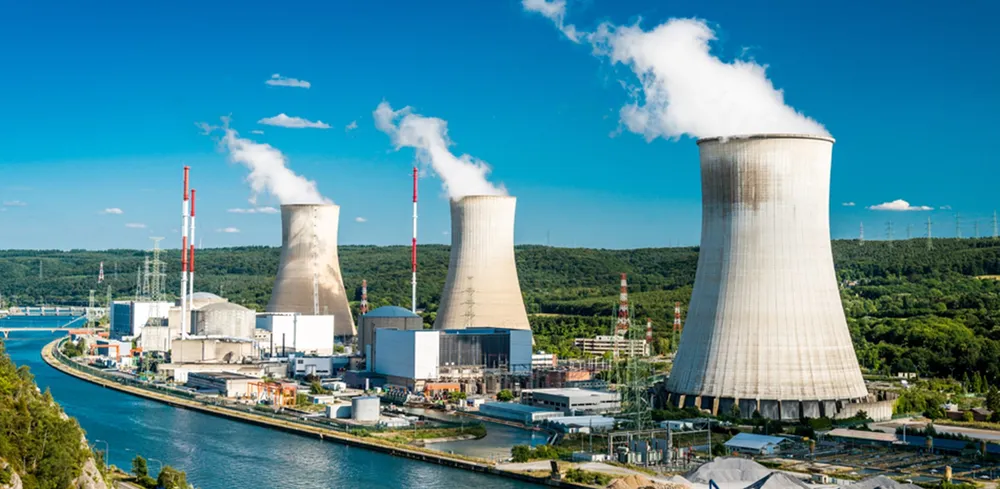
Speaking with Saigon Investment, Dr. Tran Chi Thanh (photo), Director of Vietnam Atomic Energy Institute (VINATOM), and an expert on nuclear power technology and safety, believes that strategic planning of electric power is currently needed in order to develop nuclear power for the future.
JOURNALIST: - Sir, the planning of electric power supply in Vietnam has not included the development of nuclear power. In view of national energy security is this intentional?
Dr. TRAN CHI THANH: - First of all, I want to answer the question related to nuclear power, as I am a researcher in the field of nuclear technology and safety. In 2017, we introduced a new Planning Law that was implemented under the Ministry of Planning and Investment. After that, in 2018, some rules related to the planning of nuclear power were amended. According to the new regulations, the task of the nuclear power development planning process was shelved for much later in the future, and so far this task has not yet been assigned to any Ministry. Therefore, the National Power Development Planning has no basis to discuss nuclear power at this point of time.
From the perspective of medium and long term national energy security, it is necessary to consider all possible scenarios for nuclear power generation. This is a large, stable, and reliable power source to run in the backdrop of the electricity system, which does not create greenhouse gases and is easy for supply and storing of fuel. Nuclear power and renewable energy are the new development trends in many countries in the world. However, as mentioned above, it is necessary to have a basis to bring up this issue for research and national consideration. The task of developing a nuclear power plan can be done soon, depending on the necessity, requirement and an effective development strategy.
- Sir, in terms of the environment, huge costs and national energy security, what are the advantages of nuclear power compared to other energy sources?
- Compared to fossil fuel energy and renewable energy, nuclear power has many advantages, such as no greenhouse gas emissions, no environmental pollution, safe operating conditions without incidents under current modern technology, ensured energy security because of diversified power sources, and the ability to store fuel for several years. This can be a huge, stable and reliable power source for the development of industries in the future.
Nuclear power also brings about long-term economic benefits, because the current nuclear power plants can operate for 60 to 80 years if construction and operational management are both good. In addition, nuclear power will help in promoting the further development of science and technology in basic and advanced fields, and also support many of our industries. This will bring about economic efficiency and more potential for growth of science and technology.
- In your opinion, will Vietnam be eligible to build and operate nuclear power plants for economic purposes in the future ?
- Vietnam can develop, build and operate medium and functional power plants in the world today of 1,000 to 1,200 MWe capacity. However, in order to develop nuclear power, it is necessary to have an early strategy to maintain the current nuclear power resources. If there is no policy or early strategy, after three to five years Vietnam will lose all human resources to nuclear power. Human resources are the most important factor for the success of nuclear power development.
There are people already who are building infrastructure such as a systematic nuclear regulatory system, appropriate training and retraining system, preparing technical human resources for factories, and strong research infrastructure with leading experts. Regarding the high costs and finances, nuclear power requires a large initial investment. However, it is possible to search and sort popular models in the world and within the nuclear industry.
It should be noted that in the near future, nuclear power technology based on the method of water cooling will be dominant, and there is a lot of research available in this technique and sufficient scientific basis to use this method. Small modular nuclear reactor technology (SMR), based on liquid metal furnace cooling, doesn't have enough research yet.
Therefore, in my opinion, Vietnam should not discuss SMR as it is not possible to do nuclear power projects based on this technology. It is necessary to take the nuclear research scenario into consideration and calculate, depending on the national strategy. The problem is the process and the time to implement the plans, which one is first and which is later, and when is the right time, so that it is suitable to offer the best development scenario to meet the requirements of the country, in line with the general development trend in the world.
- Sir, can you tell us more about the countries that are continuing to develop and use nuclear energy even after the Fukushima nuclear power plant incident in Japan in 2011?
- Nine years after the Fukushima incident in Japan, many countries around the world are continuing to develop nuclear power. Japan is also currently rebuilding the Energy Strategy Plan in which the main power source will be renewable energy, nuclear power and liquefied petroleum gas. Besides, from now until 2030, Japan plans to close down about one hundred coal-fired power units.
- Thank you very much.




















